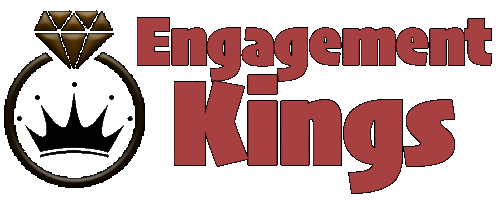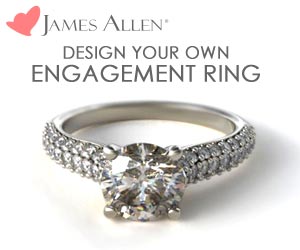You should generally wait at least two years for a marriage proposal, as most couples use this time to understand each other beyond the honeymoon phase. It’s important to evaluate emotional maturity, stability, and shared long-term goals. Open communication and a strong emotional connection are key indicators of readiness. Don’t rush if there are unresolved conflicts or lack of mutual future plans, as these are red flags. Reflecting on your happiness and relationship growth is essential. If you’re curious about more specific milestones or signs to take into account, there’s much to explore.
Typical Dating Lengths

When considering how long to wait for a marriage proposal, it’s helpful to look at typical dating lengths for context. Generally, the average dating period in the U.S. before marriage is about 2.5 years. However, this can vary widely; for instance, Ohio couples often date around 4 years, while those in Indiana average just 1 year and 3 months. Understanding these timelines can help you gauge what might be reasonable for your committed relationship.
Most couples, about 70%, tend to date for at least two years before getting engaged. This period allows both partners to fully understand each other’s values, goals, and compatibility. If your relationship status has remained stable and committed over these years of dating, you might find yourself closer to an engagement.
Moreover, once engaged, couples usually spend around 15 months planning their wedding. This engagement length indicates that modern relationships often favor longer courtship and engagement periods, providing ample time to solidify their bond.
Readiness Indicators
Recognizing readiness indicators is fundamental to determining the right moment for a marriage proposal. Relationship experts emphasize the importance of emotional maturity and stability as key signs you’re ready. You should honestly assess if you and your partner have surpassed the honeymoon phase and resolved any underlying concerns. Open communication about future plans and mutual love is essential. It’s crucial to know your partner deeply, understanding their values, goals, and any potential personal barriers to commitment.
Consider whether both of you are aligned in your long-term visions. Are you on the same page about significant life decisions, such as career goals or starting a family? Persistent doubts or unresolved conflicts might indicate it’s too soon to propose. Addressing these issues beforehand can prevent future complications and guarantee a stronger foundation for marriage.
Moreover, commitment readiness isn’t just about how long you’ve been together but about the quality of your relationship. Have you built a solid emotional connection and trust? These readiness indicators help you decide if the timing is right for a proposal, ensuring that both partners feel prepared and excited for the next chapter.
Relationship Milestones

After evaluating readiness indicators, it’s important to focus on key relationship milestones that pave the way for a marriage proposal.
One major milestone is surpassing the honeymoon phase, which typically lasts from a few days to two years. This period allows you and your partner to experience day-to-day life together, providing a clearer understanding of each other’s habits and compatibility.
Effective communication is another essential milestone. Discussing future plans, values, and expectations helps guarantee you’re both on the same page. Open conversations about finances, career goals, and even potential parenting styles can help solidify your relationship.
Experiencing significant life events together, like traveling or managing conflicts, also strengthens your bond. These experiences test your ability to work as a team and build resilience in your relationship.
Premature Proposal Signs
Rushing into a proposal without addressing lack of communication or unresolved conflicts can spell trouble for your future together.
Premature proposal signs are significant to recognize to guarantee your relationship is genuinely ready for marriage. If you and your partner avoid discussions about marriage, this lack of effective communication might indicate you’re not on the same page about your future. It’s vital to talk openly and honestly about your long-term goals.
Unresolved conflicts are another major red flag. If you have ongoing arguments or significant differences in values and life goals, these issues need resolution before considering engagement. Marriage won’t magically solve these problems; it might amplify them.
Emotional intimacy is a cornerstone of a strong relationship. If you feel there’s a lack of deep understanding or emotional connection with your partner, it’s a sign that your relationship mightn’t be ready for this big step.
Relationship readiness also involves having a sufficient shared history. Rushing into engagement without enough time to truly know each other can hinder true compatibility.
Deciding When to Stop Waiting

Determining when to stop waiting for a marriage proposal often hinges on balancing personal happiness with relationship growth. You need to reflect on the time frame you’ve been waiting and whether it aligns with your relationship goals. Consider your emotional fulfillment and overall well-being. If waiting for a proposal starts to impact your happiness negatively, it might be time to reassess.
Knowing if you’re ready to stop waiting is a personal decision that requires honest self-reflection and open communication with your partner. Set a clear time frame for when you expect to discuss the future of your relationship. If your partner remains unsure or avoids the topic after significant conversations, it might indicate a misalignment in your long-term goals.
It’s essential to evaluate whether the relationship is progressing and deepening over time. If you’re not seeing growth, it could be a sign that it’s time to move on. Ultimately, you need to discuss and decide if waiting is still beneficial or if it’s time to take the relationship to the next level or move forward independently. Your happiness and emotional well-being should always be the priority.
Conclusion
Ultimately, there’s no one-size-fits-all timeline for waiting for a marriage proposal.
Focus on open communication with your partner, and understand that your readiness and relationship dynamics are key factors.
Make certain you’re both aligned in your life goals and emotionally prepared for the next step.
Don’t let waiting compromise your happiness or the growth of your relationship.
Trust your instincts, and remember, the right time is when you both feel truly ready.



